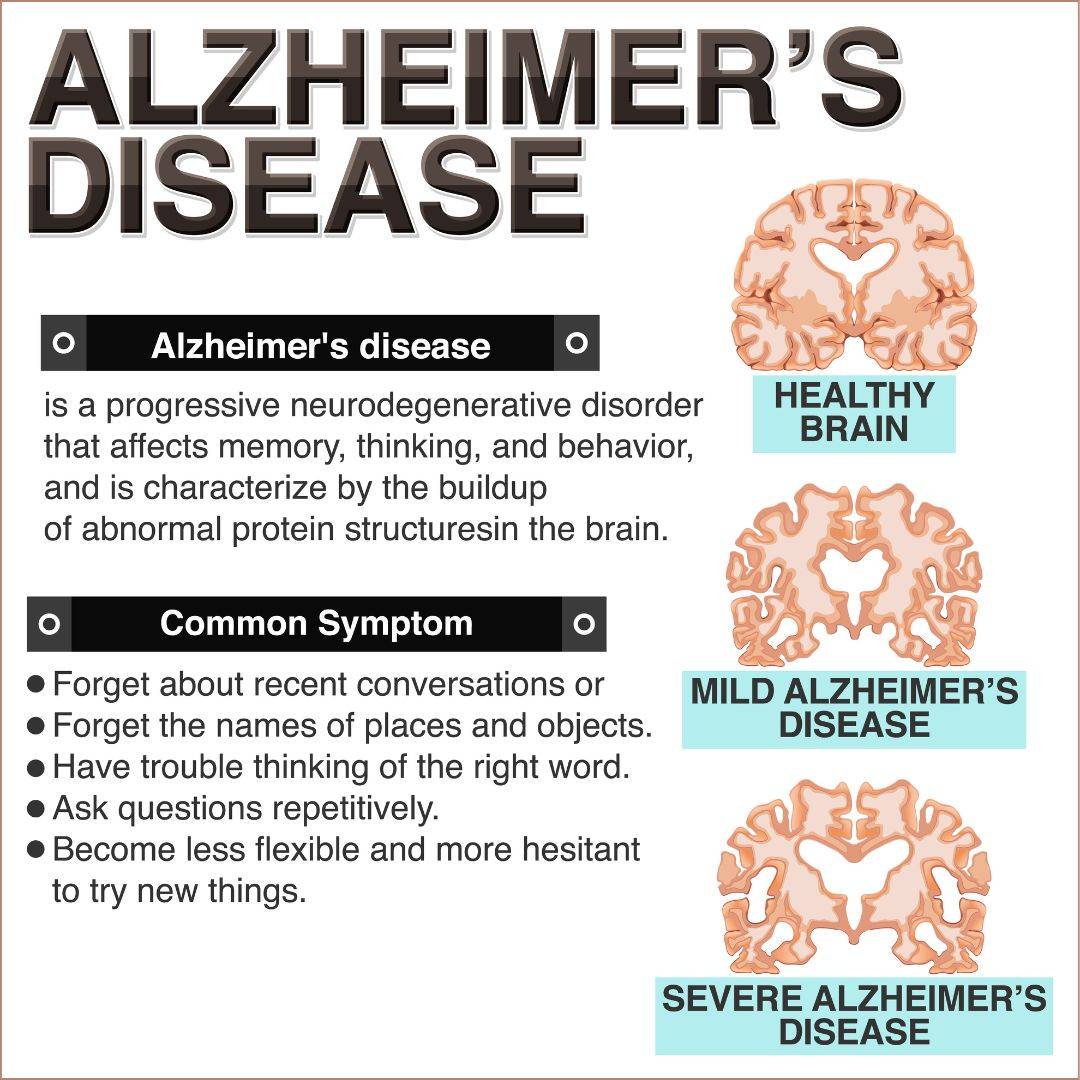Understanding Alzheimer's Disease: A Human Perspective
Imagine your brain as a library filled with precious books that hold memories, knowledge, and skills. Now picture some of those books slowly disappearing, making it harder to find what you need. That’s what Alzheimer’s disease feels like—a condition that quietly takes away the ability to remember, think, and connect. While it can be overwhelming, understanding Alzheimer’s is the first step toward managing it with compassion and care.
What Is Alzheimer’s Disease?
Alzheimer’s disease is a progressive condition that affects the brain. It starts with mild memory problems and can lead to more serious difficulties, like struggling to have conversations or respond to the world around you.
The disease occurs when abnormal proteins build up in the brain, forming plaques and tangles. These disrupt communication between nerve cells, causing them to die. Over time, this leads to the shrinking of brain tissue, especially in areas responsible for memory and thinking.
Why Early Detection Matters
Think of Alzheimer’s as a small crack in a dam. Catching it early gives you a chance to repair the crack before it turns into a flood. Early detection doesn’t stop the disease, but it can slow its progression and provide time to plan for the future.
When detected early, individuals and families can:
- Access treatments that may slow symptoms.
- Prepare emotionally, financially, and logistically for the road ahead.
- Participate in clinical trials that might lead to better treatments.
Signs to Watch For
Spotting Alzheimer’s early can be tricky because the symptoms often look like normal aging. Here are some common signs to keep an eye on:
1. Memory Loss: Frequently forgetting recently learned information, important dates, or events.
2. Difficulty Planning or Solving Problems: Struggling with familiar tasks, like following a recipe or managing bills.
3. Confusion About Time or Place: Losing track of dates, seasons, or where you are.
4. Trouble Understanding Visuals: Difficulty reading, judging distance, or identifying colors.
5. Problems with Words: Forgetting simple words or struggling to follow conversations.
6. Misplacing Items: Putting things in unusual spots and being unable to retrace steps to find them.
7. Poor Judgment: Making uncharacteristic decisions, like giving away large sums of money.
8. Withdrawal from Activities: Avoiding hobbies, social events, or work responsibilities.
9. Mood or Personality Changes: Becoming confused, suspicious, anxious, or easily upset.
If you or someone you love shows these signs for more than a few weeks, it’s important to see a doctor.
How Is Alzheimer’s Diagnosed?
Diagnosing Alzheimer’s requires a thorough evaluation to rule out other possible causes of symptoms. Here’s what the process typically involves:
- Medical History: Reviewing personal and family health history, as well as current medications.
- Physical and Neurological Exams: Checking reflexes, coordination, and overall health.
- Cognitive Tests: Assessing memory, problem-solving, and language skills.
- Laboratory Tests: Conducting blood tests to rule out other conditions like vitamin deficiencies or thyroid problems.
- Brain Imaging: Using tools like MRI or CT scans to identify brain changes, such as tissue shrinkage.
Recent advancements, such as blood tests that detect Alzheimer’s-related proteins, are making diagnoses faster and more accurate.
Caring for Someone with Alzheimer’s
Caring for a loved one with Alzheimer’s can be challenging, but it’s also deeply rewarding. Here are some strategies to help provide the best care:
1. Create a Safe Environment
- Remove tripping hazards and secure dangerous items.
- Install grab bars in bathrooms and ensure good lighting throughout the home.
2. Establish Routines
- Stick to a consistent daily schedule to reduce confusion.
- Break tasks into smaller, manageable steps and offer gentle reminders.
3. Encourage Physical Health
- Promote regular exercise, like walking or stretching, to boost mood and mobility.
- Provide balanced meals with plenty of hydration.
- Schedule regular doctor visits to monitor overall health.
4. Support Cognitive Function
- Engage in simple mental activities, like puzzles or listening to music.
- Encourage social interaction to prevent feelings of isolation.
5. Manage Behavioral Changes
- Stay calm and patient during moments of confusion or agitation.
- Redirect their attention to a soothing activity if they become upset.
6. Provide Emotional Support
- Listen with empathy and validate their feelings.
- Join a support group to share experiences and gain insights from others.
Living with Alzheimer’s
For those living with Alzheimer’s, finding ways to maintain dignity and quality of life is essential. Building a support network of family, friends, and professionals can make a world of difference.
- Stay Engaged: Participate in activities that bring joy, like gardening, painting, or watching favorite movies.
- Use Tools and Reminders: Write down appointments, label items around the house, or use apps designed to help with memory.
- Practice Self-Care: Caregivers, remember to look after your own mental and physical health too.
Hope Through Research
The field of Alzheimer’s research is evolving rapidly, offering new hope for better detection and treatment.
- New Medications: Drugs like Kisunla (donanemab) aim to slow the buildup of harmful plaques in the brain, potentially slowing the disease’s progression.
- AI Tools: Artificial intelligence is being used to predict Alzheimer’s onset with impressive accuracy, making early intervention more accessible.
Final Thoughts: Facing Alzheimer’s Together
Alzheimer’s disease may change the way we navigate life, but it doesn’t have to take away the love, joy, and connection we share with those affected. Early detection, compassionate care, and staying informed are powerful tools to manage the condition.
Whether you’re living with Alzheimer’s or caring for someone who is, remember that you’re not alone. Together, we can create a supportive environment where dignity and quality of life take center stage.




No comments yet
Be the first to share your thoughts!